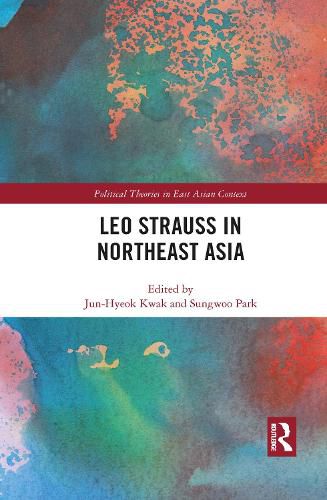Readings Newsletter
Become a Readings Member to make your shopping experience even easier.
Sign in or sign up for free!
You’re not far away from qualifying for FREE standard shipping within Australia
You’ve qualified for FREE standard shipping within Australia
The cart is loading…






This book analyzes the reception of Leo Strauss and his political philosophy in Northeast Asia. By juxtaposing the central idea of Strauss’s political philosophy with the question of modernity, the contributors explore the eclectic adaptations of Strauss in Northeast Asian countries as a philosophical appropriation across cultures.
Examining how Strauss’s philosophy was first introduced in Northeast Asia, the book sheds light on the similarities and differences in experiences, challenging the dominant approach which attributes various receptions of Strauss in Northeast Asia solely to sociopolitical circumstances. This book also seeks to move beyond a China-centric approach to investigate the possible transcultural appeals of Strauss’s political philosophy by exploring the cases of Japan and South Korea.
Appealing to a wide network of scholars and practitioners in East Asia engaged in rethinking cultural particularities, this volume will be attractive to upper-level undergraduate students, graduate students, and advanced researchers in political philosophy, political theory, and Asian politics.
$9.00 standard shipping within Australia
FREE standard shipping within Australia for orders over $100.00
Express & International shipping calculated at checkout
This book analyzes the reception of Leo Strauss and his political philosophy in Northeast Asia. By juxtaposing the central idea of Strauss’s political philosophy with the question of modernity, the contributors explore the eclectic adaptations of Strauss in Northeast Asian countries as a philosophical appropriation across cultures.
Examining how Strauss’s philosophy was first introduced in Northeast Asia, the book sheds light on the similarities and differences in experiences, challenging the dominant approach which attributes various receptions of Strauss in Northeast Asia solely to sociopolitical circumstances. This book also seeks to move beyond a China-centric approach to investigate the possible transcultural appeals of Strauss’s political philosophy by exploring the cases of Japan and South Korea.
Appealing to a wide network of scholars and practitioners in East Asia engaged in rethinking cultural particularities, this volume will be attractive to upper-level undergraduate students, graduate students, and advanced researchers in political philosophy, political theory, and Asian politics.